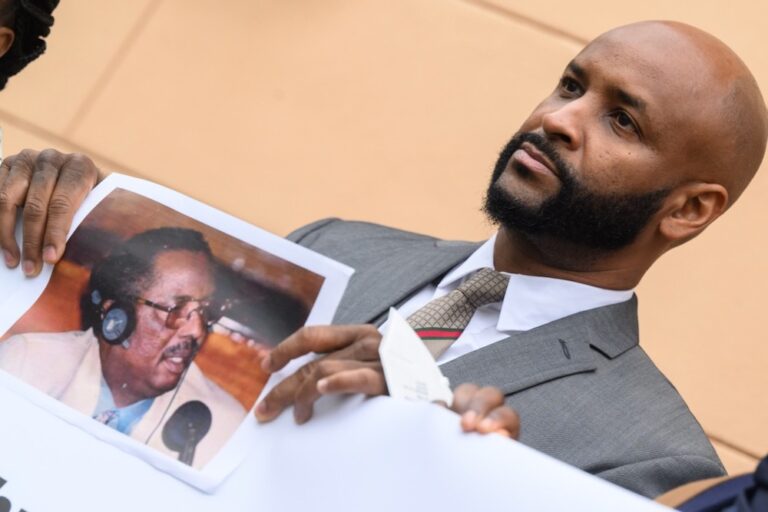The regional court ruled that the arrest of Musa Saidykhan and subsequent detention by the authorities were illegal and violated his right to personal liberty and a fair hearing.
(MFWA/IFEX) – On 16 December 2010, the ECOWAS Community Court confirmed that Musa Saidykhan, the former editor-in-chief of the banned Banjul-based, “The Independent” newspaper, was tortured by President Yahya Jammeh’s security agents while in detention in 2006.
The regional court also ruled that his arrest and subsequent detention by the authorities were illegal and violated his right to personal liberty and a fair hearing as guaranteed by Articles 6 and 7 of the African Charter on Human and Peoples Rights.
The 3-member panel awarded Saidykhan damages of US$200,000, far below the US$2,000,000 that he had requested.
Media Foundation for West Africa (MFWA), through its Media Legal Defence programme, initiated the action against the Gambian government in 2007 to seek justice for Saidykhan and many others who have suffered the brutalities of the repressive regime of President Jammeh and have escaped into exile.
This is not the first time that the Gambia has lost a case against MFWA. In 2008, the ECOWAS court declared as illegal the arrest and subsequent detention and “disappearance” of another Gambian journalist, Chief Ebrima Manneh, a reporter with the pro-government “The Daily Observer” newspaper. Manneh disappeared after his arrest in 2006. The regional court awarded him US$100,000 in compensation. The judgment was in default as the authorities refused to make an appearance.
The ruling in the Saidykhan case is significant because it coincides with the sixth anniversary of the gruesome murder of prominent journalist Deyda Hydara, who was killed by unknown assailants believed to be “rogue elements” of the regime. To this day, no proper investigations have been conducted into the murder.
At the end of the hearing, both parties welcomed the court’s decision. Martins .U. Okoi, who represented the Gambian authorities, told the court he would ensure that the authorities implemented the ruling. For his part, Femi Falana, lead counsel for Saidykhan, described the judgment as a victory for the rule of law in West Africa and appealed to leaders in the region to respect the rights of their citizens.


